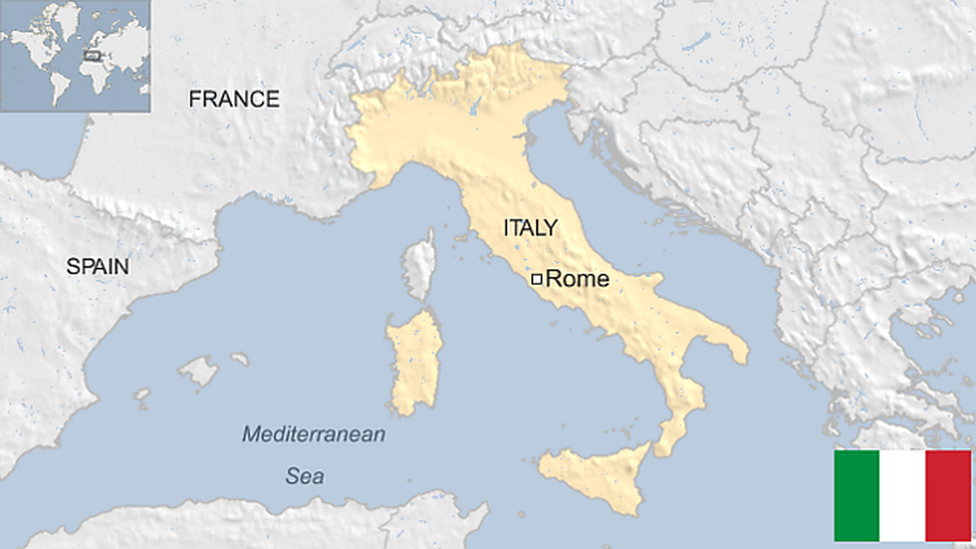Italy's populists aim to challenge EU on debt and migrants
- Published
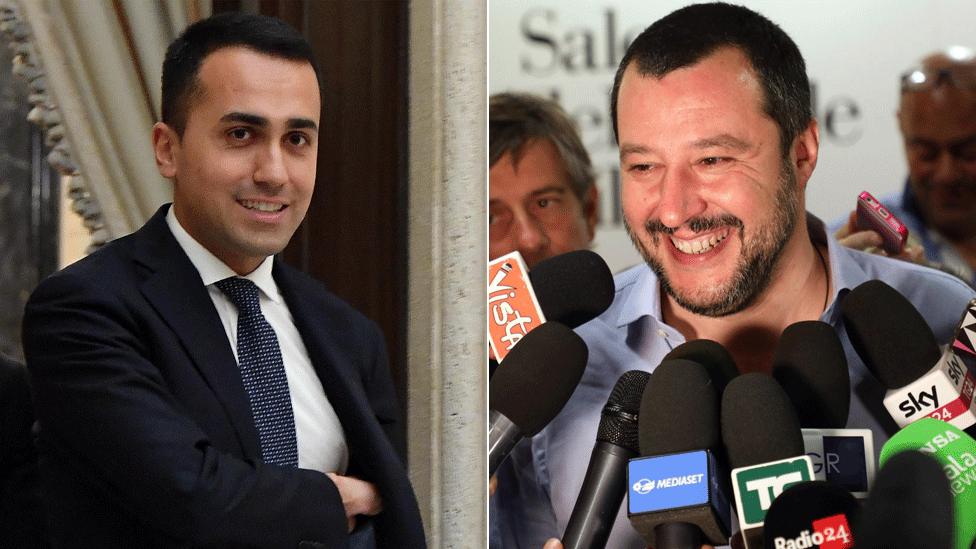
The Five Star Movement of Luigi Di Maio (L) and Matteo Salvini's League hope to finalise their deal on Wednesday
Italy's two populist parties will try to reach a deal on forming a government after a leaked draft revealed plans to defy EU rules on migration and debt.
One of the draft ideas is to demand the cancellation of €250bn (£220bn; $295bn) of Italian bonds bought by the European Central Bank.
Italy has the second highest public debt in the eurozone.
The two party leaders also launched an attack on EU officials, accusing them of interfering in the talks process.
Three EU commissioners have already stressed there is no appetite for any change in the rules.
Right-wing League leader Matteo Salvini attacked "unacceptable interference from the EU" while Luigi Di Maio, of the anti-establishment Five Star Movement, spoke of "continuous attacks... from Eurocrats".
They also condemned the leak of the draft deal by HuffPost Italia and said the proposals, dated 09:30 on 14 May, were out of date.
Mr Di Maio took aim at the UK's Financial Times for a story headlined "Rome opens its gates to the modern barbarians, external".
The paper warned that Italy was on the verge of forming "the most unconventional, inexperienced government to rule a western European democracy since the EU's founding Treaty of Rome in 1957".
What do the two parties want?
The parties say much of the 39-page draft has radically changed. But some of the details have not been denied and will alarm the European Union.
Five Star and The League want billions of euros of bonds bought up by the ECB as part of its quantitative easing programme to be scrapped. This would lower Italy's public debt, currently at 130% of national output.
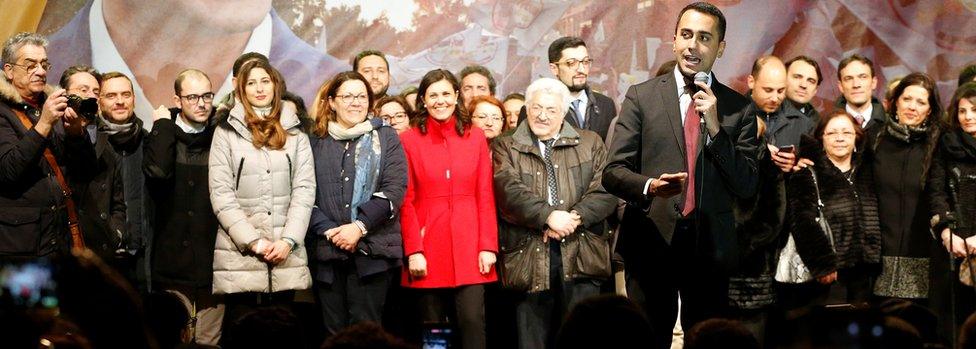
If a deal is reached, Luigi Di Maio says it will have to be put to an online vote of his party's members
They have not confirmed this plan but do say they want to get together with EU partners to rethink the EU's stability and growth pact, which has strict rules on keeping budget deficits below 3% of economic output.
The two parties are planning a budget worth tens of billions of euros, with plans for a minimum universal income and a flat tax of 15% for low and middle earners.
They are still discussing how they want to tighten immigration which they describe in the leaked draft as "unsustainable for Italy". These plans could also challenge EU rules.
Then there are proposals to scrap EU sanctions on Russia immediately, while confirming Italy's place in Nato. Both populist parties are seen as friendly to President Vladimir Putin.
There is still no word on who the parties want to lead the government. Neither Mr Di Maio nor Mr Salvini will take the job of prime minister.

How dangerous for the EU?
By Gillian Hazell, BBC News, Rome
Luigi Di Maio and Matteo Salvini have been working day and night to find a common way through their very different policy promises to the Italian electorate.
Five Star and The League once sought to leave the EU and return to Italy's old currency, the lira. Now they say they will try and reform the EU from within.
Both have strong ideas about how to deal with Italy's ongoing migrant crisis and crushing debt without sticking to EU regulations. Italy is one of the eurozone's founding members and its third-biggest economy but the populist parties want to put Italians first and foremost in their government pact.
It is still not clear if, or when, this coalition government might be formed and both parties want to check back with their supporters. Five Star would put the pact to an online vote of its members and The League says it will take the deal to the streets. If this fails they want to go back to the polls immediately.

How is this going down in Brussels?
Three European commissioners have already made clear where they stand on trying to change the rules on debt and migration.
"I don't see any signs that member states would like to change the rules at least any time soon or give exemptions to any member state," said Commission Vice-President Jyrki Katainen on Tuesday.
Another vice-president, Valdis Dombrovskis, said the Commission still expected Italy to bring down its debt.
Immigration Commissioner said he hoped that Italy would not "change the line on migration policy".
- Published14 May 2018

- Published11 May 2018
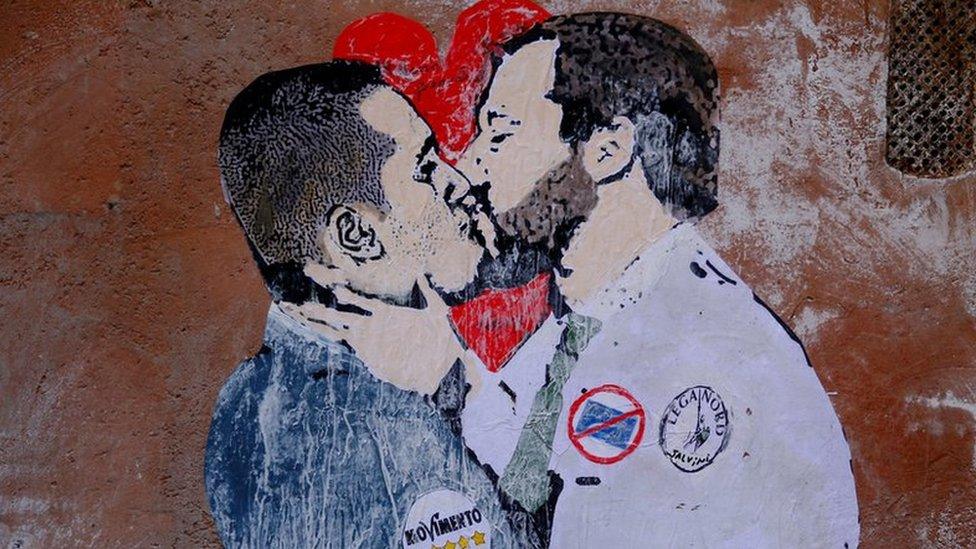
- Published2 March 2018
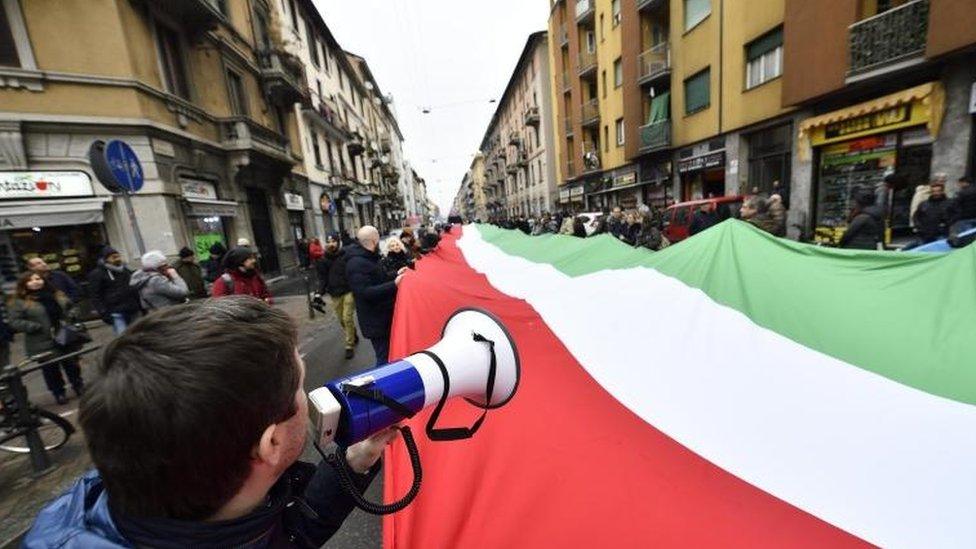
- Published4 October 2023
